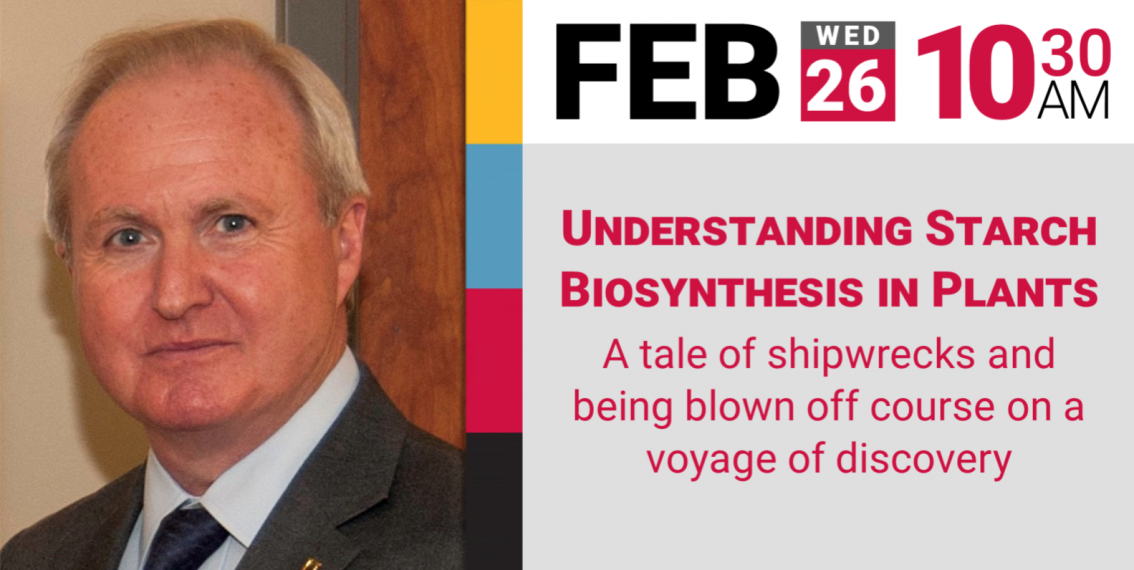MCB Distinguished Speaker Series: Dr. Michael Emes
Date and Time
Location
SSC 2315

Details
Dear Colleagues,
Please join us as we welcome our very own Dr. Michael Emes as part of MCB's Distinguished Speaker Series on Wednesday, February 26th, 2020.
Seminar time: 10:30 - 11:30 AM
Room: SSC 2315
All are welcome to attend. Please see poster for further details.
Sincerely,
MCB Distinguished Speaker Seminar Committee
Title:
Understanding Starch Biosynthesis in Plants: a tale of shipwrecks and being blown off course on a voyage of discovery.
Abstract:
“By the advice of several worthy persons, to whom I communicated these papers, I now venture to send them into the world, hoping they may be, at least for some time, a better entertainment to our young noblemen, than the common scribbles of politics and party.” Gulliver’s Travels by Jonathan Swift.
Starch is a semi-crystalline glucose polymer. As the major determinant of yield in cereals and tubers it provides 70% of humankind’s daily calories, yet our understanding of its biosynthesis is far from complete. Synthesis of insoluble starch from soluble ADPglucose is dependent on at least three classes of enzymes: starch synthases (SS); starch branching enzymes (SBE); and starch debranching enzymes (DBE); each of which consists of multiple isoforms. In this seminar I will review recent evidence from our laboratory and others that isozymes of SS and SBE form heteromeric, multi-enzyme complexes in a process which is dependent on protein phosphorylation and controls the architecture of the starch granule. Analysis of mutants and transgenic plants provide evidence for the significance of these complexes in vivo. Sometimes, we have misread the molecular map and foundered on the rocks of a distant shore. Exploring these new lands has, occasionally, unearthed buried cellular treasure revealing other aspects of metabolism and development, and new possibilities for improving crop production.